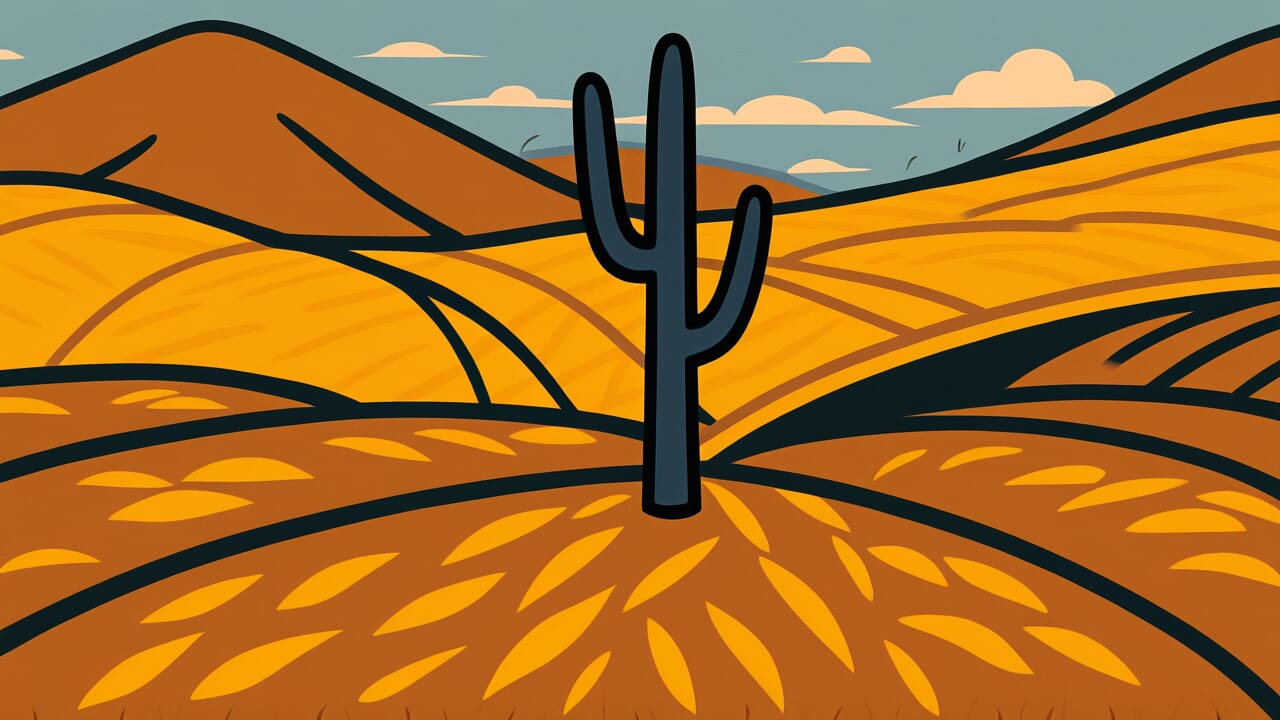How to Read “Winter past, corn dear”
Winter past, corn dear
WIN-ter past, corn DEER
The word “dear” here means expensive, not the animal.
Meaning of “Winter past, corn dear”
Simply put, this proverb means that after difficult times pass, the things we need become more expensive and harder to get.
The literal words paint a clear picture. Winter represents any hard time when resources run low. “Corn dear” uses an old meaning of “dear” that means costly or expensive. So when winter ends, corn costs more because supplies are scarce.
The deeper message applies to many situations today. After any crisis or shortage, prices often go up. This happens with food after bad weather, gas during supply problems, or even workers after economic troubles. People who have what others need can charge more for it.
What makes this wisdom interesting is how it reveals a harsh truth about timing. Just when people think the worst is over, they face new challenges. The proverb reminds us that surviving the crisis is only part of the battle. Recovery often brings its own difficulties that catch people off guard.
Origin and Etymology
The exact origin of this proverb is unknown, though it appears to be several centuries old. Early versions show up in collections of English sayings from rural communities. Farming societies would have understood this pattern very well from direct experience.
The historical context makes perfect sense for agricultural times. Winter meant using stored grain and preserved food. By spring, many families ran low on supplies. Fresh crops wouldn’t be ready for months, creating a gap when food became scarce and expensive.
This type of practical wisdom spread naturally through farming communities. People shared observations about seasonal patterns and economic cycles. The saying likely traveled from rural areas to towns as trade connections grew. Over time, people began applying it to situations beyond just food and farming seasons.
Interesting Facts
The word “corn” in this proverb originally meant any grain crop, not just what Americans call corn today. In older English, “corn” referred to wheat, barley, oats, or whatever grain was the local staple food.
The phrase “corn dear” uses a common pattern in old English where adjectives came after nouns. This structure appears in many traditional sayings and legal terms from the same period.
This proverb demonstrates a linguistic feature called metonymy, where one thing represents something related to it. “Winter” stands for any period of hardship, and “corn” represents all essential resources that become scarce.
Usage Examples
- Farmer to neighbor: “Better stock up on grain now while it’s cheap – winter past, corn dear.”
- Store owner to customer: “I’d buy that extra bag today if I were you – winter past, corn dear.”
Universal Wisdom
This proverb captures a fundamental pattern in human experience that goes far beyond seasonal farming. It reveals how scarcity and abundance create cycles that shape our lives in predictable ways. The wisdom recognizes that hardship doesn’t end cleanly, but often transforms into different challenges.
At its core, this saying addresses our tendency to think in simple before-and-after terms. We imagine that once we survive a crisis, everything returns to normal. But reality works differently. The aftermath of difficulty creates new conditions that can be just as challenging as the original problem. Resources that seemed abundant before become precious. People who weathered the storm together might now compete for what remains.
The deeper truth here connects to how human societies have always worked. Those who control scarce resources gain power and influence. This creates opportunities for some while creating hardships for others. The proverb doesn’t judge this pattern as good or bad. Instead, it simply observes that this is how things tend to work. Understanding this cycle helps people prepare for what comes after the obvious crisis ends. It suggests that wise planning looks beyond immediate survival to consider what happens when the dust settles and new realities emerge.
When AI Hears This
People treat leftover corn like it’s made of gold. They know new crops are growing right outside. But their minds can’t connect today’s empty storage with tomorrow’s full harvest. This creates a strange trick of thinking. The last few bags seem more precious than fresh corn will ever be.
Humans always do this with anything running low. Old wine costs more after bad harvests. Last winter’s firewood feels more valuable than summer wood. People think surviving items have special powers that new ones lack. Their brains mix up “rare right now” with “actually better quality.”
This weird thinking actually helps humans survive tough times. Treating leftovers as precious prevents waste during shortages. It makes people save resources when they should. The mind’s trick isn’t broken – it’s working exactly as designed. Sometimes being illogical about value keeps us alive.
Lessons for Today
Understanding this pattern helps us navigate both personal and collective challenges more skillfully. When facing any difficult period, it becomes important to think beyond just surviving the immediate crisis. Planning for the recovery phase can prevent getting caught off guard when new problems emerge.
On a personal level, this wisdom suggests building reserves during good times and being strategic about when to use them. It also means recognizing that others might take advantage of post-crisis scarcity. Being aware of these dynamics helps in making better decisions about timing, whether that involves major purchases, career moves, or important negotiations.
In relationships and communities, this pattern shows up when groups that worked together during emergencies later find themselves competing for limited opportunities or resources. Understanding this tendency can help maintain cooperation even when circumstances change. The key insight is that recovery periods require different strategies than survival periods. Rather than feeling discouraged by this reality, we can use this knowledge to navigate transitions more thoughtfully and help others do the same.



Comments